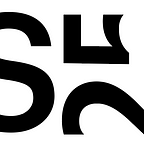The last three years have been spent pivoting from the initial agency model Seven25 was originally built on. When I founded it in 2006, we focussed on branding and storytelling for not for profits and, as we gained BCorp status that year, we became more and more committed to supporting social entrepreneurs. At the same time, and for over a decade, I taught at Emily Carr University and saw the opportunity for design methodologies to serve as tools in re-imagining business as an equalizing force.
Fast forward a few years and I pursued an EMBA to formalize this vision of shared-value business models and to explore systems change in entrepreneurial spaces.
Lately, a lot of my efforts have been focussed on ecosystem building and making social entrepreneurship “mainstream”. In 2019, I pursued this work in different contexts:
- in Paris, through the FrenchIoT program for the third year running;
- in Lima and Arequipa on various occasions throughout the year with SwissEP, Global Affairs Canada, NEsST, and most recently for Innovaté Perú, taking part in a 3-day train-the-trainers bootcamp for incubator and accelerator leaders;
- in New York, I contributed to BelCham’s intensive for startups expanding into the US;
- in Atlanta, at the Emory Rollins School of Public Health, the focus was on aspiring social entrepreneurs in the health space;
- in Zurich, I spent a week with an impressive cohort of folks from the Balkans, Vietnam, and Perú for SwissEP’s Women Entrepreneurs Week;
- at Seven25, my team and I worked on strategy, branding and storytelling engagements with startups, universities, and other actors focussed on the world’s to-do list.
- and I continued running my own not-for-profit startup which has now taken on a new incarnation.
These experiences further cemented that both the potential and the gaps present in various entrepreneurial ecosystems are similar in various contexts, namely:
Diversity
Whilst there’s been notable progress on the number of programmes and funding schemes aimed at women founders, there is still generally a woeful lack of diversity both in socioeconomic status, gender, age, and race/ethnicity. This has a lot to do with opening up more inclusive onramps to ecosystems as well as changing how money moves.
What’s more, the concept of the startup — meaning disruption, high growth potential and speed — serves to segregate so-called opportunistic entrepreneurs from entrepreneurs-by-necessity (often women, youth and disadvantaged populations) and SMEs. This despite the fact that formal SMEs can constitute up to 45% of total employment in emerging economies (or underserved communities) — and much more than that if you count informal ones.
Outcomes
There seems to be a lag or disconnect between the creation of ecosystems and a systemic approach to implementation. Where is value created and who benefits? How is performance measured for incubators and accelerators? This lack of a clear picture hinders identifying gaps in the system as well as targeting funding effectively. Luckily, good folks are working on it.
Fundraising
If, when, or how to acquire funding? What types of funding exist? How might I prepare to be fundable? Fundraising is a key topic that remains mysterious to many early-stage entrepreneurs, and perhaps more so for social entrepreneurs who perceive additional barriers to finding values-aligned funders.
Systems-thinking
Both entrepreneurs and ecosystem builders struggle with implementing a systems thinking approach — rather than solely a user- or stakeholder-centered lens. How might we do better at identifying stakeholders and our place in a system to make decisions that are more widely beneficial?
Convening
How can natural conveners (universities, community foundations, conferences . . .) lead the way and scale their efforts by being connected to other activators and funders with an eye to systemic best practices for implementation?
Developing hands-on trainings for various types of organisations led to asking: how might we systematically design better social enterprises?
Convening17, an initiative of Conveners.org, gathers folks to foster collaboration around the 17 Sustainable Development Goals (SDGs) to:
Have you seen successful models you’d like to share? What elements can be scaled to increase the chances of profitability and sustainable growth in social enterprises? Experience has shown that bootcamps, workshops, and even incubators, only go so far in addressing in-the-moment challenges for entrepreneurs—often because they require too great of an investment of time, money/equity or travel.
Our initial experiment at Seven25 is to launch and iterate on Protagoniste—a continuous learning space for social entrepreneurs supported by subject-matter experts, peer learning but also conveners and ecosystem architects—so we can build faster together. Stay tuned for more on that as it develops.
